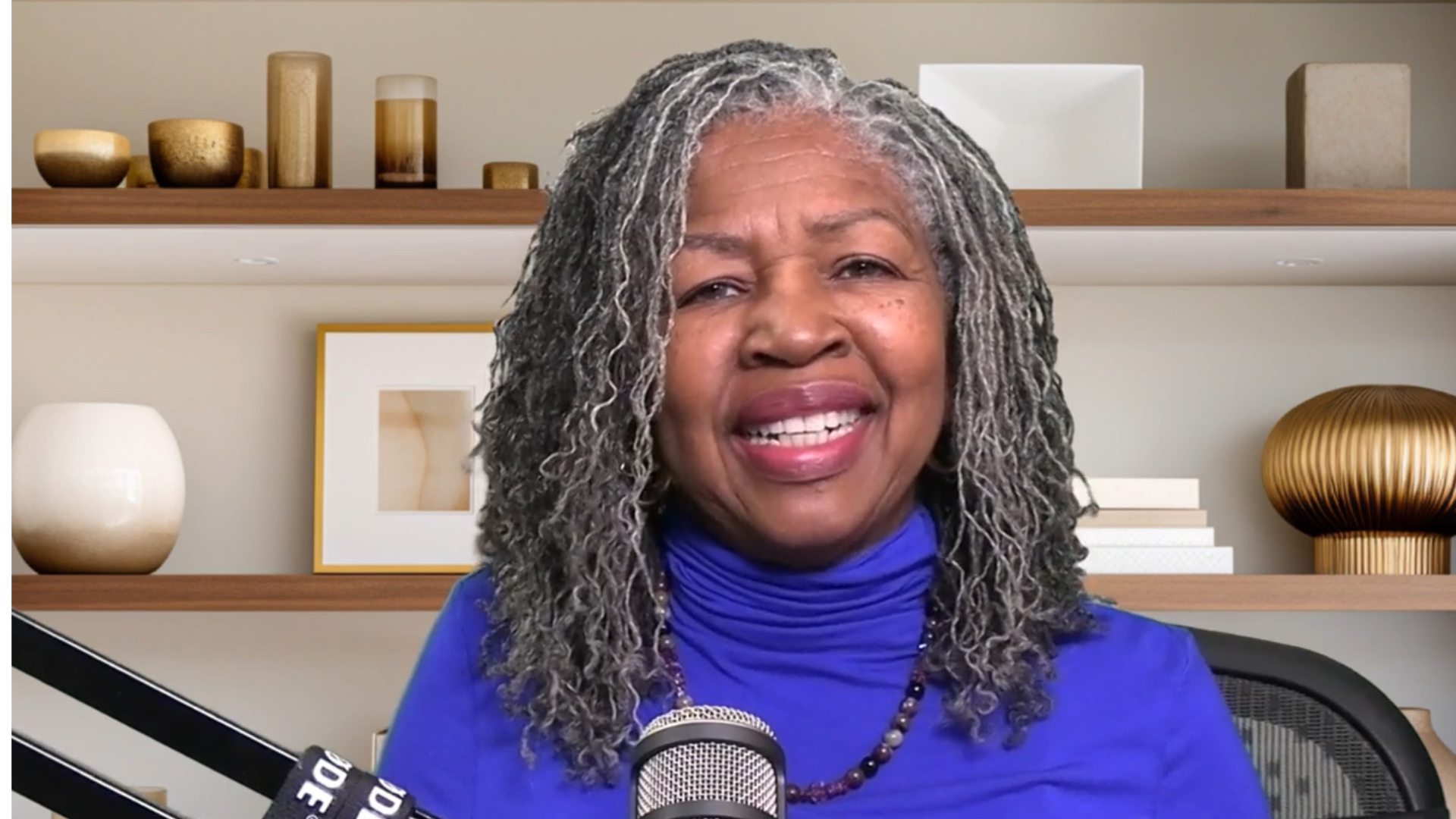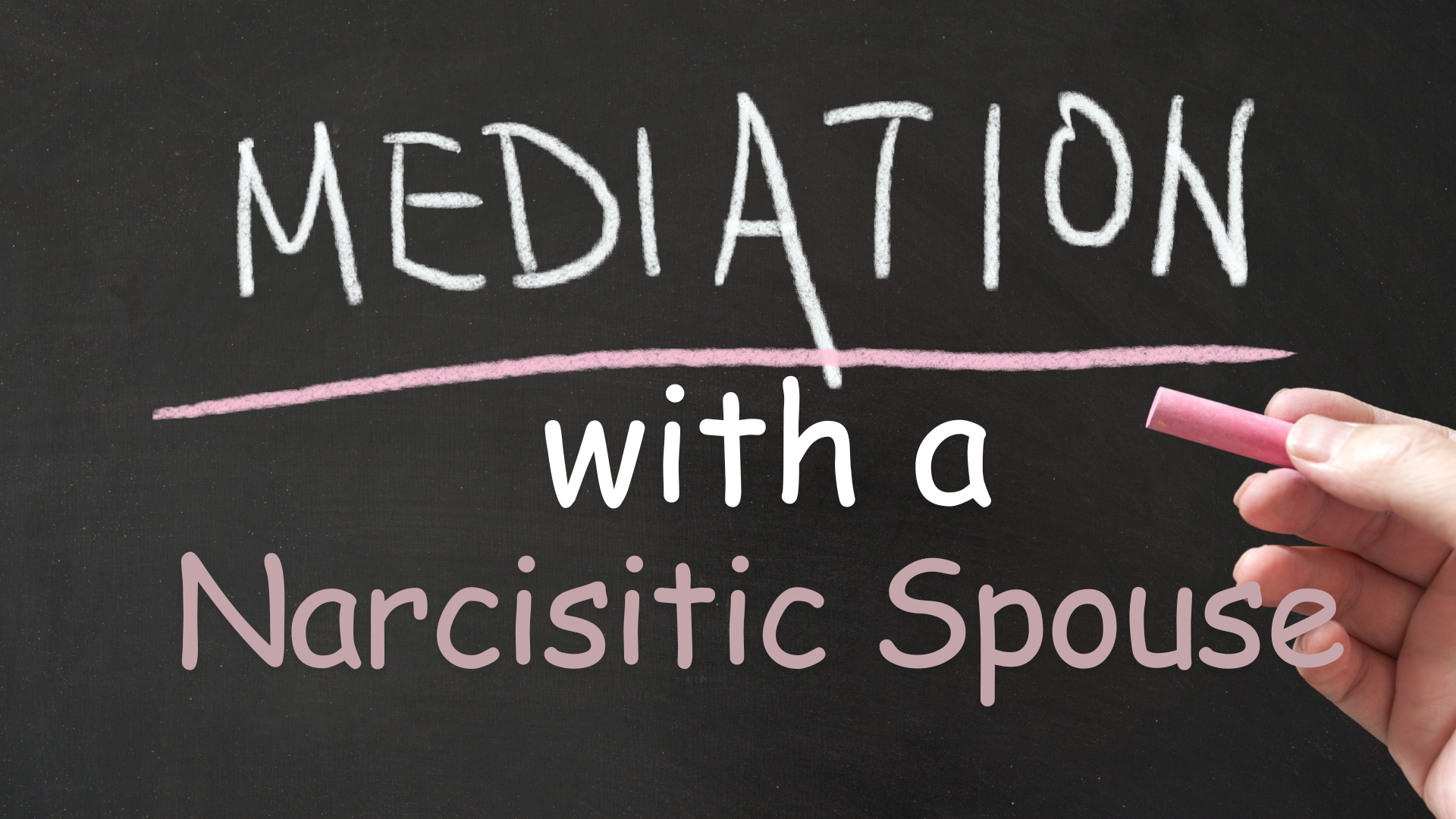Mediation With A Narcissistic Spouse-It's a Minefield
Is mediation a tool for compromise—or a weapon for manipulators? Uncover the hidden dynamics of narcissistic abuse in family law disputes, and learn how to arm yourself with knowledge before stepping into the ring. In this blog article we will explore the impact of participating in mediation with a narcissistic spouse.
The Push for Mediation
The separation was supposed to give them space—to breathe, to think, to figure out if there was anything left to salvage. But Sam had other plans.
“We need to mediate,” he insisted, his voice smooth and persuasive. “Lawyers will bleed us dry.”
Angela hesitated. Mediation sounded reasonable on the surface. It’s a way to keep things civil. But she knew better. She had spent years negotiating with Sam, and the outcome was always the same—his way or chaos. She was worried about and thought she’d better learn more about the pitfalls of attending mediation with a narcissistic spouse
She recalled the last time they had tried to “compromise.” Sam had pushed to sell their home, claiming they could use the money to fund his latest startup idea. When she refused, his mood swung wildly—first, days of relentless anger, slamming doors, and cold silence. Then, as if flipping a switch, he arrived with roses in hand, his voice dripping with apology. “You know I’d never hurt you,” he had whispered. And, as always, she had caved.
The Therapist Tried to Warn Her
Angela sat in her therapist’s office, gripping a throw pillow like it was a lifeline. She had spent the past ten minutes explaining Sam’s latest push for mediation. He framed it as reasonable, painted attorneys as money-hungry manipulators, and made her feel selfish for even considering a different path.
Her therapist listened patiently, and her expression was unreadable but kind. And then, in a calm, measured voice, she said:
“Mediation can retraumatize victims. Narcissistic spouses can charm mediators. You’ll be pressured to comply.”
Angela swallowed hard.
“It’s just… I don’t want to fight,” she admitted, her voice barely above a whisper. “I just want to do what’s best for the kids. And I can’t afford a long legal battle.”
Her therapist leaned forward. “Angela, let me ask you something—when has Sam ever done what’s best for anyone but himself?”
She let out a breath she didn’t realize she had been holding.
Never. That was the answer. Never.
Angela's Breakthrough: Understanding He Fights To Win
Sam had always found a way to make things work in his favor. She wanted a small, cozy place near her family when they bought their first home. Sam had insisted on a big house an hour away, arguing that it was “better for the kids.” He dismissed her concerns when she brought up how isolated she would be. “You’ll be fine. You’re overreacting.”
When she returned to work after having their second child, she asked Sam to help with school drop-offs. He agreed—until two weeks in when he suddenly started “forgetting” and making excuses. She found herself rearranging her entire schedule to compensate. And when she confronted him, he had laughed. You’re acting like I did this on purpose. Relax.
It had always been this way. He dictated. She adjusted. He acted. She reacted.
“You’re afraid to fight,” her therapist said gently, “but that’s because fighting with Sam has never been fair. He doesn’t fight to compromise, Angela. He fights to win.”
Angela felt her hands tighten around the pillow.
Not Wanting to Look Unreasonable
“I just don’t want to look unreasonable,” she said. “I don’t want to be the difficult one.”
Her therapist’s voice was firm. “You’re not being difficult. You’re trying to protect yourself and your children. There’s a difference.”
Tears pricked at Angela’s eyes.
For years, she had been told she was too sensitive, too demanding, too emotional. But what if she wasn’t? What if she had simply been gaslit into believing that standing up for herself was a flaw?
“What if I do go to mediation?” she asked, her voice shaky. “How do I keep from getting steamrolled?”
Her therapist gave a small, knowing smile. “That’s the real question. Mediating with a narcissistic spouse comes with challenges”
Angela nodded.
And for the first time in a long time, she realized—maybe she was finally asking the right questions. Now she was beginning to feel a little more confident about having to attend mediation with a narcissistic spouse.
Angela's Battle For Balance
At 3 a.m., Angela lay awake, staring at the ceiling. Sleep felt impossible. The dim glow of her laptop cast shadows across the room as she scrolled through divorce forums—again. She had read about narcissistic traits countless times: grandiosity, lack of empathy, manipulation. Each description felt like a painful reminder.
Sam had never been diagnosed, but after ten years of marriage, Angela felt she didn’t need a professional’s confirmation. She had lived it. Every conversation felt like a battle, every compromise a loss. Now, as she prepared for mediation with a narcissistic spouse, she wondered if fairness was even possible. Would the process protect her, or would it become another arena for Sam’s control?
More importantly, Angela knew mediation was meant to encourage cooperation, but how do you negotiate with someone who thrives on manipulation? After her meeting with her therapist she was finally beginning to understand.
The Public Mask of a Narcissist
What It Means
“The Public Mask” refers to the carefully crafted persona that someone—often a narcissist or manipulative person—presents to the outside world. This mask is designed to make them appear charming, kind, reasonable, or even altruistic, while hiding their true nature, which may be controlling, manipulative, or emotionally abusive in private.
For example, a narcissistic spouse might appear as a devoted parent, a loving partner, or an upstanding member of the community in public, but behind closed doors, they engage in gaslighting, emotional abuse, or manipulation. This contrast between their public image and private behavior makes it difficult for victims to be believed or recognized as being in a toxic relationship.
Angela Remembers: A Public Mask Story
Angela balanced the cake in her hands, forcing a smile as her daughter beamed at the lit candles. Around her, the room buzzed with laughter and conversation. Sam, ever the entertainer, had the guests hanging on his every word.
“So last night, Angela decided to try something new in the kitchen,” he announced, his voice dripping with amusement. “Let’s just say the smoke alarm had to be the taste tester!”
Laughter rippled through the party. Angela’s grip tightened around the serving knife.“Thank God I cooked tonight, right?” Sam added, clapping a firm hand on her shoulder. The weight of it sent a shiver through her, but she didn’t move.
Their friends chuckled, though some shifted uncomfortably. A few glanced at Angela, their smiles faltering as if sensing something was off, but not enough to say anything.
Later, Angela confronted him when the guests had gone, and the house was quiet. “Why would you embarrass me like that?” she asked, arms crossed.
Sam barely looked up. “Oh, come on. You’re too sensitive. It was just a joke.”
A joke. That’s what he always called it. But it didn’t feel like a joke. It felt like another crack in her foundation, another moment where she had to laugh along to keep the peace. The forums had a word for it—gaslighting.
Potential Harm in Mediation
In Angela’s story, Sam’s “public mask” would be his ability to charm mediators, appear cooperative, and frame himself as the reasonable party while privately using intimidation, guilt, and manipulation to get what he wants.
The Gas Lighting
What It Means
Gaslighting is a form of psychological manipulation where a person makes someone else question their own reality, memory, or perceptions. It is often used by narcissists, abusers, or manipulative individuals to gain control over another person by making them doubt themselves.
Angela Remembers: The Gaslighting
It started with something small.
One winter morning, Angela reminded Sam that they had agreed to split daycare drop-offs. He smirked. “Do you think I’d agree to that? You must’ve imagined it.”
For weeks, she second-guessed herself. Had she misunderstood? Was she being unreasonable? Then, while doing laundry, she found proof—a crumpled note in his jacket with his rushed handwriting: “Fine, I’ll do mornings.”
Gaslighting was Sam’s specialty. He could twist reality so convincingly that Angela started doubting her memories. One moment, he promised to take the kids to soccer practice. The next, he claimed she’d never asked. “You’re so forgetful,” he’d say, shaking his head. “Maybe you should see a doctor.”
Potential Harm in Mediation
Gaslighting can significantly undermine the mediation process, especially when one party (often the narcissist) uses it as a tool to control the outcome. Mediation relies on good faith negotiation, but when gaslighting is at play, the victim may struggle to advocate for themselves or even trust their own judgment.
The Mediation Ultimatum
Sam’s email arrived at midnight: “Mediator booked. Thursday. Be there.” No discussion. Angela’s chest tightened. She pictured him leaning across the table, his voice honeyed as he spun tales of her “irrationality” to a neutral third party. Would the mediator see through him? Or would they, like so many others, fall for the charisma that once made her swoon?
Her fingers hovered over the keyboard. “I need my lawyer present,” she typed. Delete. “I’m not ready.” Delete. The cursor blinked, a metronome of dread.
Is Mediation the Right Choice?
Angela’s story may be fictional, but for many, it feels all too real. For those who have endured emotional abuse, mediation isn’t just about resolving logistics—it can become a battleground for control and manipulation.
In the next part of this series, we’ll break down the risks of mediating with a narcissistic partner, strategies to protect yourself, and when going to court may be the safer option.
Stay tuned—because your rights and well-being matter.
FAQ's
Is mediation ever a good option when dealing with a narcissistic spouse?
How can I protect myself if I have to go to mediation?
What are some red flags that mediation is not working?
What are my alternatives to mediation?
Can I undo a bad mediation agreement if I feel pressured to sign?

About Esther
Esther C. Moore is a family law attorney with over 27 years of experience, including high-conflict child custody and divorce cases. As the CEO of All Rise Solutions, LLC, Esther provides coaching, online courses, and resources to help individuals navigate the legal system when dealing with complex family law matters, including mediation in high-conflict divorce. With a deep understanding of how narcissistic dynamics impact custody and divorce proceedings, Esther is committed to empowering individuals with the knowledge and tools they need to protect their rights.






